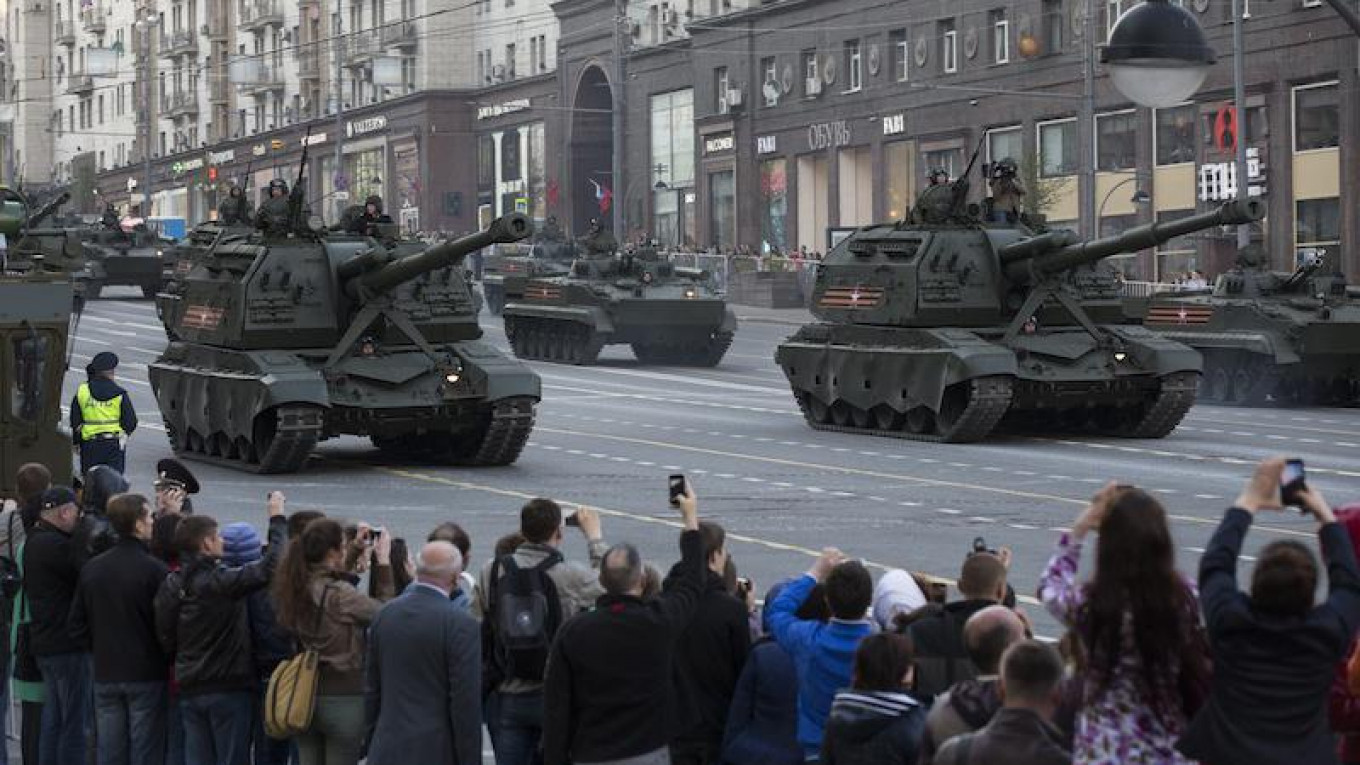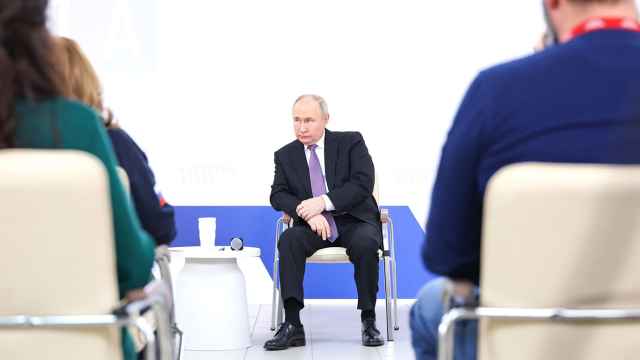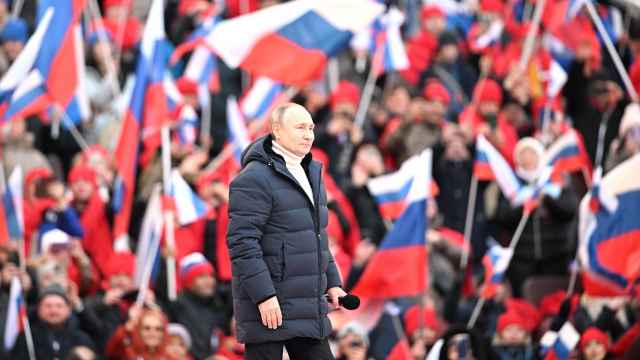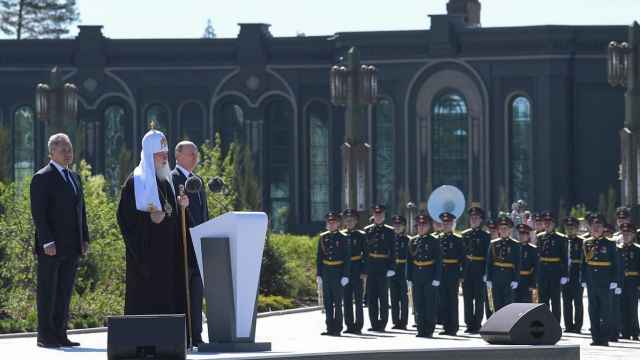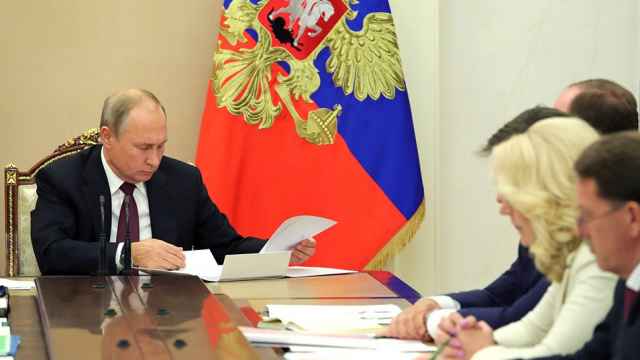Weary of news from Syria? Worried about growing tensions
in the Donbass? Choking at the thought of a Russian military jet nearly
colliding with a NATO bomber? You have probably every reason to feel anxious.
Not because Russia’s leadership has specific military ambitions in mind — they
may indeed have them, or may very well not. But, instead, because
militarization is what Russia’s society is expecting.
In early August, the independent Levada Center pollster conducted a poll of Russians’ attitude toward President Vladimir Putin.
It was a more detailed poll than usual: instead of simple
approval ratings, the pollsters gauged a whole range of attitudes and feelings
toward Russia’s leader.
Among other things, the poll showed “fondness” of Putin falling by 8 percent in July compared to March: It fell from 37 to 29 percent. Some commentators have taken these figures to demonstrate a slide in Putin’s charisma, and that his approval rating is falling amid economic turbulence.
That is a deep misinterpretation: Putin’s popularity is not falling in any significant way. As all other polls show, his overall approval rating never dropped lower than 80 percent over the last two and a half years.
Putin’s rating stands stock solid. It dominates and overlooks the landscape. Since the annexation of Crimea in early 2014, it is Russia’s most stable substance.
But this doesn’t mean that its nature remains the same.
In fact, public support can be a combination of various emotions. That is especially true of authoritarian regimes, which suppress normal democratic institutions.
Almost 17 years ago, Putin became a “president of hope,” as defined at that time by Russia’s most renowned sociologist Yury Levada, the founder of the Levada Center.
Back then Russia, like the rest of the world, was still trying to crack the “Who is Mr Putin?” question. But hopes — during the 2000s — hopes there were a plenty. People hoped that order would be restored. That the conflict in Chechnya would end. That the world would respect Russia. That there would be more money. On the whole, they had a faith that the future would be better than the present.
Vladimir Putin personified these aspirations. These aspirations didn’t even imply that he should stay. Indeed, the first time Putin’s approval rating peaked at over 80 percent was when Putin announced in 2008 he would step down from his throne and leave it for his successor. Back then, people presumed, that he had left the position forever.
This has all changed. In the latest Levada poll, the highest number of respondents in recent years say they have never relied on the president. The dreams of the past are long gone by now.
“There are no hopes,” says Alexei Levinson, the lead researcher of the Levada Center. “If there are hopes, they are meaningless, not so different from despair. Social conscience is equally — and simultaneously — ready to feel both.”
The future is perceived as “murky, deformed, inspiring fear,” wrote Denis Volkov, also from the Levada Center, in the Vedomosti newspaper on Aug. 8. One might take that thought a step further: In today’s Russia, there is only one thing that unites — or, to put it more accurately — fragments the whole nation. It is the lack of any vision of the future, shared by everyone, with no exception.
And, according to the poll, when it comes to Putin, there is almost nothing left to be satisfied with. During the 2000s, Russia’s foreign policy was one of the major sources of national self-respect. The results of the new Levada poll would seem to prove this is becoming less so. The number of those who tick off “strengthening Russia’s global stature” as Putin’s major achievement is not growing, but decreasing. This should not be of much surprise, since there is hardly a conscious Russian who doesn’t realize that Russia has been excluded from the global decision-making club.
Most areas relating to national pride and glory show downward trends, except just one — the number of Russians proud of the nation's “fighting capacity.” This grew from 3 percent in 2012 to 14 percent in 2016. This is the only clear upward trend, the only thing that may replace those hopes for a better future that Putin used to symbolize.
Putin’s public image is transforming into that of a warlord. That’s his major political asset at home, the new pillar of his popularity, and that’s how his countrymen increasingly expect him to act and react on the global scene.
A Message from The Moscow Times:
Dear readers,
We are facing unprecedented challenges. Russia's Prosecutor General's Office has designated The Moscow Times as an "undesirable" organization, criminalizing our work and putting our staff at risk of prosecution. This follows our earlier unjust labeling as a "foreign agent."
These actions are direct attempts to silence independent journalism in Russia. The authorities claim our work "discredits the decisions of the Russian leadership." We see things differently: we strive to provide accurate, unbiased reporting on Russia.
We, the journalists of The Moscow Times, refuse to be silenced. But to continue our work, we need your help.
Your support, no matter how small, makes a world of difference. If you can, please support us monthly starting from just $2. It's quick to set up, and every contribution makes a significant impact.
By supporting The Moscow Times, you're defending open, independent journalism in the face of repression. Thank you for standing with us.
Remind me later.



